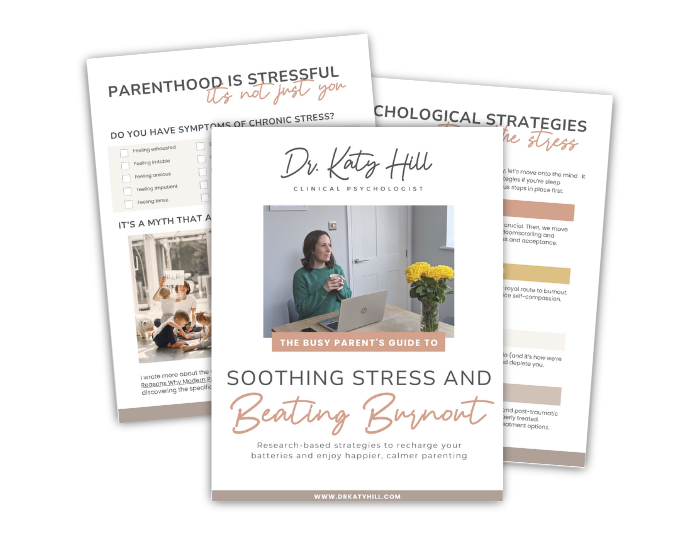Christmas can be a time of heightened and conflicting emotions. Joy, excitement and nostalgia often mixing with irritation, disappointment, loneliness, and grief, creating a real rollercoaster of feelings.
Handling all the emotions in the household plus the extra festive workload can make it really hard for parents to feel calm and balanced at this time of year.
If you’ve found yourself feeling more overwhelmed than festive, you’re absolutely not alone.
That’s why, in this final instalment of my 4-part Christmas stress management series, we’re focusing on how to navigate the emotional highs and lows of Christmas Day itself.
If you haven’t already, check out the previous three blogs: The Christmas Survival Guide for Exhausted Parents, How to Set Boundaries at Christmas, and The 12 Days of Christmas Self-Care for practical tips to simplify and enjoy the season.
why christmas feels so emotionally charged
It’s not like any another holiday; we’re not feeling this overwhelmed at Easter. It’s a whole season loaded with expectations – supercharged by films, social media and advertisers. And you’re not imagining it; Christmas really does come earlier each year.
Christmas comes with a powerful narrative; it’s ‘the most wonderful time of the year’. It’s a magical time where Father Christmas brings whatever children ask for, whole families come together in perfect harmony, enjoying luxurious feasts and perfectly wrapped presents in their winter wonderland homes. With snow falling on cue.
It’s an impossible standard. For parents, the pressure to create this magical experience can feel immense. And when reality doesn’t match up? In rush feelings of guilt, inadequacy, and even shame.
But it’s not just the pressure of creating a perfect day. Christmas can also stir up deep emotional triggers, such as:
Grief for loved ones who are no longer here to celebrate.
Memories of Christmases past, both joyful and painful.
Overstimulation caused by disrupted routines, late nights, travel, decorations, sugar highs, alcohol and families cooped up indoors for days together.
Financial pressure and the stress of spending more than feels comfortable.
Tricky family dynamics the pressure to spend time with family can lead to us feeling obliged to spend time with people we’d not freely choose to
For children, the excitement of Christmas can also tip into overwhelm. The sugar, the disrupted sleep, the long build-up, the disappointment when the excitement of Christmas morning gives way to boredom – it’s a recipe for big feelings.
When you add the emotional weight that parents are already carrying, it’s no wonder the day can feel intense for everyone.
preparing for highs and lows
While you can’t completely eliminate Christmas stress, being proactive can help you approach the day with more balance and ease.
Expect and Accept the Rollercoaster: Half the battle is won when you expect a mix of emotions. It’s normal to feel joy one moment and frustration the next. Having more reasonable expectations for yourself and your children can help you meet these feelings with acceptance and compassion instead of resistance or self-criticism.
Reflect on Triggers and Plan Ahead: Take a moment to consider what usually feels most stressful about Christmas for you. Identifying these triggers allows you to create a plan to manage them in advance. If family dynamics have been an issue in the past, decide how much time you want to spend together and plan for breaks when needed. If you know that hosting Christmas dinner is going to tip you over the edge then make plans to simplify the menu or guest list – or splurge on a meal in a restaurant and let someone else do all the work.
Make time for Resting and Recharging: Christmas can feel like a whirlwind of activities, travelling and socialising unless you intentionally build in recharging breaks. You could plan quiet days or evenings in between events and moments of quiet during busy days. Having a quiet space in the house to retreat to can work wonders as can taking time to step outside for a walk to the park or to see the neighbourhood lights.
Moderation and Balance: Festive food, drinks and late nights are all part of the fun but a little balance helps keep things from going too awry: remember to add in more balanced meals, plenty of water, gentle exercise and naps or moments of rest to offset the indulgence.

The Parental Burnout Quiz
Curious what your own parental burnout score is? Download the free assessment and get your score – plus expert tips on how to reduce it.
managing big emotions in the moment
Even with preparation, there’s still likely to be the odd flashpoint – the argument during Monopoly, the unexpected memory of a lost loved one that hits you in the chest, the feeling of inadequacy when you scroll social media and it feels like everyone else had a bigger, better Christmas. Here’s how to handle those moments:
Pause: When you feel the emotions rising up, pause, slow down. Notice what’s going on, take a deep breath and resist the urge to do or say something in haste. Try grounding yourself in the here in now by looking around the room and naming three things you can see, hear and feel to anchor yourself in this moment.
Name it to tame it: Name what you’re feeling “Here’s a moment of grief”, “I notice that I’m feeling really lonely here”. Labelling your feelings gives you that chance to slow down, and process what’s going on, it takes the heat out of them so you can respond rather than react.
Self-compassion: Rather than blame or shame yourself for your natural feelings, see if you can give yourself the patience and understanding you’d show your child or best friend. Tell yourself: “This is hard, it makes sense that I’m really struggling right now” or “This is a tough day for me; I’m doing my best and that’s more than enough”.
Reframe the moment: Use this one with caution – don’t gaslight yourself – this isn’t appropriate for all situations. Sometimes, when things don’t go as planned, you can try to see the humour or opportunity in the situation. If the dog eats the turkey and there’s nothing to be done then maybe that’s an opportunity to enjoy pizza and a beer, knowing that it’ll be a funny story when enough time has passed.
reflecting as christmas draws to a close
As Christmas winds down, many of us are left with mixed emotions – relief, exhaustion, satisfaction or sadness. But don’t lie in bed on Christmas night stewing on what went wrong and how that makes you a terrible person.. instead, try these tips:
Reflect on what went well: Our brains naturally focus on what’s gone wrong (it’s a survival mechanism to keep us safe) and they easily forget what went well – the psychologist Rick Hanson says our minds are like Velcro for the bad and Teflon for the good. We can balance out this tendency by intentionally remembering and noting down the little moments of joy, connection and love that happened throughout the day. You could even ask your children at bedtime what their favourite moments of the day were and join in their pleasure.
Reflect without self-criticism: When you do reflect on what didn’t work so well this year, think about what you’d say to a friend in a similar situation. You’d probably tell them that their feelings make sense and that it’s ok to feel whatever they’re feeling, that they’re not to blame. Try to take a compassionate stance with yourself. And this isn’t about letting yourself off the hook; if you did really ruin Christmas dinner with your reactive behaviour then self-compassion makes it much easier to own up to that and make amends. Shaming yourself just keeps you stuck in your stress response.
Reflect on your future plans: Try to take a neutral look at what’s happened this year, see it as information rather than evidence of your failings. I always like to think of emotions as signals and problems as data – both tell you what matters most to you and can guide you in your future plans. So, maybe you did lose your temper during Monopoly but instead of beating yourself up, you plan to apologise and decide that next year you won’t offer to host so many family members because it was overwhelming and that made you tetchy.
embracing the season with compassion
Remember, it’s perfectly normal to experience a mix of emotions during Christmas, for all the reasons we’ve discussed above. I hope this blog has given you some ideas about how you might navigate the highs and lows of the season with greater ease, acceptance and self-compassion. Merry Christmas!
need help managing stress?
If you’re looking for more support, check out my free eBook, The Busy Parent’s Guide to Soothing Stress and Beating Burnout. It’s full of practical, evidence-based strategies to help you navigate the challenges of parenting with less stress and more balance.








